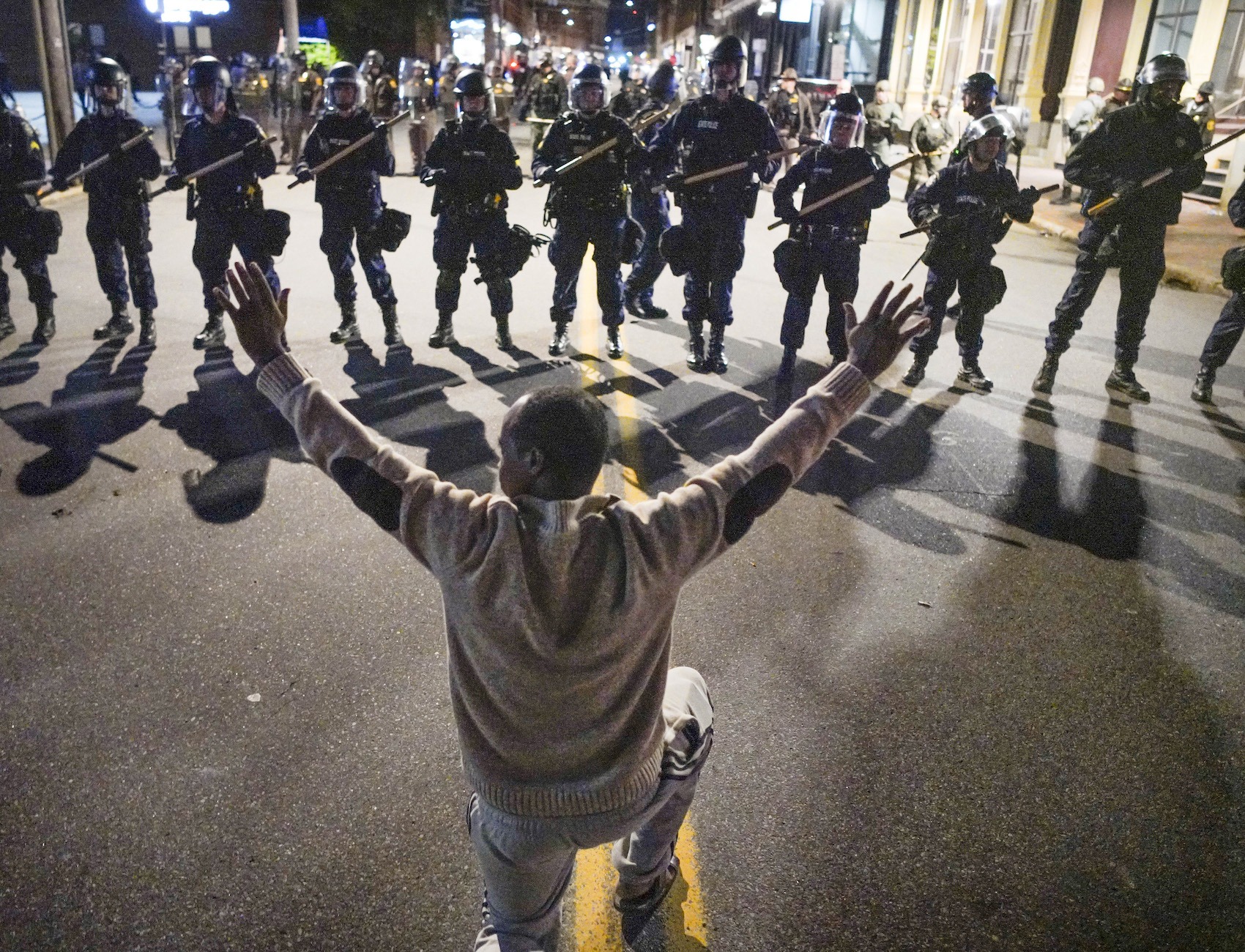Commentary
What Prosecutors Should Learn from 2020’s Pandemic and Protests
In the new year, every prosecutor’s office should commit to protecting victims and workers, holding police accountable, and keeping families together.

This commentary is adapted from an article by the author published earlier this year by The Journal of Criminal Law & Criminology at the Northwestern Pritzker School of Law.
Our nation’s collective response to the two defining events of 2020—a deadly health pandemic and a national movement against racism and violence in policing—will have lasting repercussions. The COVID-19 pandemic and the murder of George Floyd have forced many Americans, district attorneys in particular, to question whose safety and wellness our country prioritizes—and why. While this year has been defined by tragedy and loss, 2020 does not have to be a year framed solely by pain: there are also opportunities for transformation and growth, including in the criminal legal system.
As a newly elected prosecutor, I know that there is much work ahead. Reimagining justice and safety starts with taking bold steps to transform the prosecutor’s office to protect victims and workers, hold police accountable, and keep families together. As district attorneys, we must work to create safe and healthy communities by protecting those made vulnerable by crime. Prosecutors have long mistaken justice for convictions and lengthy prison sentences. This must change. To this end, the San Francisco District Attorney’s Office (SFDAO) has committed to supporting all crime victims, especially survivors of domestic violence and those impacted by police violence.
For instance, the isolation of COVID-19 has further endangered domestic-violence survivors, including children, while also posing greater impediments for victims to get help. Through a mix of public and private partnerships, my office secured free housing for survivors and their children. Our initiative has expanded to include hotel rooms for emergency use, housing through Airbnb, and transportation through Lyft. Accessing these resources does not require crime victims to participate in prosecuting a criminal case. We also implemented a policy to provide victims of police violence with victim compensation benefits even when the police do not corroborate their accounts.
COVID-19 has also demonstrated the real danger created by mass incarceration. Not only do jails rip apart families and derail lives, but they also create the ideal conditions for the coronavirus to spread. By looking carefully at each person in our jails and by early and safely releasing people whose release posed minimal safety risks, we reduced San Francisco’s jail population from 1,238 in January to a low of 696 in mid-April. As a result, we have so far avoided a serious outbreak in our jails like those facing other jails and prisons around the nation.
To protect workers, including those put at risk by working during the pandemic, the SFDAO launched a unit to safeguard them from exploitation. We know that this is central to our mission of ensuring the safety of the entire community, because harm to workers has ripple effects on their families. Our new Economic Crimes Against Workers Unit (ECAW) investigates violations by employers such as wage theft or misclassification of essential workers as independent contractors instead of employees, leaving workers without basic protections like paid sick leave.
Promoting justice in the legal system requires us to deeply reckon with the racism permeating throughout our criminal legal system. Today’s system is a chilling reminder of the lasting consequences of the centuries of systemic racism that began with slavery and have extended through Jim Crow, discriminatory housing policies, and the Drug War. To sever ties with this shameful history, the SFDAO has eliminated the use of status enhancements that exacerbate racial inequalities while undermining public safety. We created a diversion program for primary caregivers to keep families together and end the inter-generational cycle of incarceration. And we have led the nation in our refusal to seek money bail, a system that has criminalized poverty and disproportionately hurt people of color.
To rebuild trust with citizens, ensure the integrity of our cases, and value Black lives, we must hold police to account. The badge should not be treated as a shield from prosecution; district attorneys must show that no one who breaks the law is above it. The SFDAO sponsored a ban on the city’s hiring of police officers who have a history of misconduct for excessive use of force, racial bias, or dishonesty. We refuse to charge contraband cases based on racist, pretextual traffic stops by police. To ensure that the SFDAO is not complicit in covering up excessive use of force by police, we require corroborating evidence, such as video surveillance footage, for allegations like resisting arrest or assault against an officer. We have also implemented a new policy against relying solely on reports from officers with a history of serious misconduct. This will prevent future wrongful convictions, deter misconduct by law enforcement, build public trust, and restore integrity to the criminal legal system.
The role of a district attorney is to build public safety and promote justice, and these steps toward implementing the lessons learned from 2020 are just a start. Truly addressing the societal issues that drive crime cannot be accomplished with narrow reforms that ignore broader contexts. Promoting public safety means thinking big: considering public health, education, employment, housing, the environment, and more. After all, healthy, equitable communities are safe communities. For too long, we’ve allowed politicians to create fear based on a selective definition of “law and order”—one that reinforces an unjust system that benefits the privileged and criminalizes the most vulnerable. Prosecutors have a real opportunity to transform our broken criminal legal system and to create a world where we can all feel safe. It’s time we acted.
